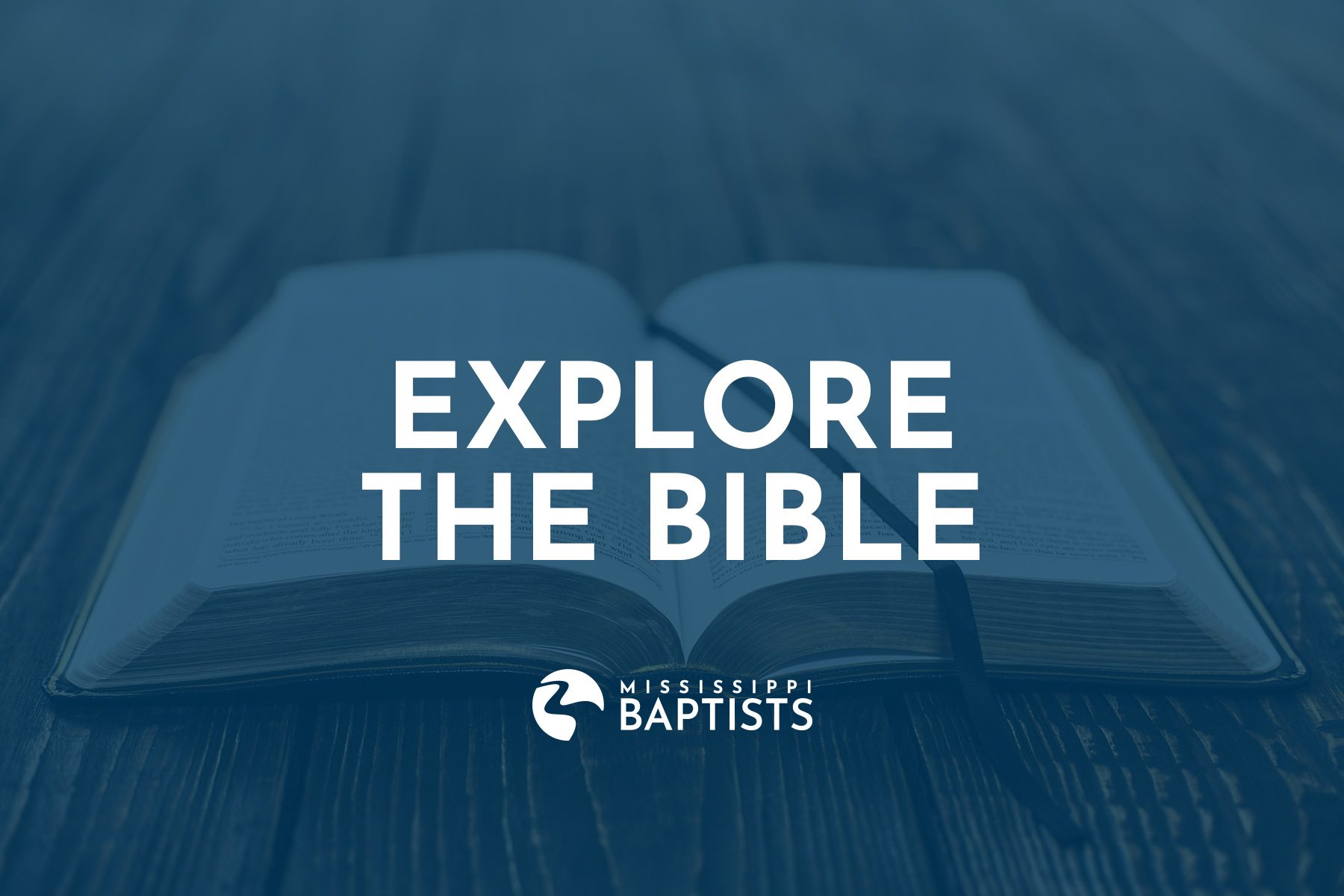God’s Truth • Psalm 119:1-16
By Philip Price

In Psalm 119:1-16, the writer stressed the importance of obeying the instructions from God’s word. In the original language, this passage features three Hebrew words: Derek (Way/Path), Lev (Heart), and Torah (Law/Instruction). An understanding of these words will lead us to a better understand the passage.
The Path: God’s Instruction Given (Psalm 119:1-4)
In verse 1, the psalmist begins emphatically, “How happy are those whose way (Derek) is blameless, who walk according to the Lord’s instruction!”(CSB). The Hebrew word Derek is used four times in Psalm 119:1-16 (vv. 1, 3, 9,15) and is commonly translated “way.” Additionally, other translations for the word are “road, path, journey, [and] conduct” (Mounce). Literally, the term refers to a well-worn path or road. Metaphorically, Derek signifies an individual’s spiritual journey, which is shaped by their moral choices. True happiness is a divine blessing of God and is the result of a believer creating a “well-worn” path by following God’s instructions found in the scriptures. Bible knowledge is not the ultimate goal of believers. Followers on the way of God “seek Him” (v. 2, NKJV) fervently.
Next, in verse 3 we read that the genuinely happy “do nothing wrong; they walk in his ways.” Of course, believers still sin. However, when walking in God’s “ways” you cannot go wrong. The “blameless” diligently keep his “precepts” (v. 4). Our goal in life is not to gain information about God, but it is to experience transformation by Him. God has “plans” for us (Jer 29:11) and to do things his “way” we must treasure the only authoritative manual on life, the Holy Bible.
The Priority: Obedience to God’s Word (Psalm 119:5-8)
A second key Hebrew word used in the focal verses is Lev, which is often translated“heart” (vv. 2, 10, 11). William Mounce contends that in the Old Testament, this word was used to identify the seat of emotion (I Sam 2:1), desire (Psalm 37:4), thought (Gen 6:5) and decision (I Chr 12:38). Faithful followers of God will “seek him with ‘all’ of their ‘heart’”(Lev) (vv. 2,10). Furthermore, maturing believers “treasure” the “word” in their “heart” (v. 11).
The writer’s tone in verses 5-8 is one of desperation. “If only my ways were committed
to keeping your statutes!” (v. 5). He did not want to be “ashamed” of his obedience to God’s “commands” (v. 6). The psalmist discerned that he had to “learn” the “righteous judgments” for him to “praise” the Heavenly Father “with an upright heart” (v. 7).
Please note, in verse 7, the Hebrew word Levav is used for “heart” and, while similar to Lev, the word carries a deeper meaning. The Orthodox Jewish Bible distinctly translates “uprightness of heart” as “yosher levav.” Levav describes a heart that is in complete unity in devotion to God. Consequently, an “upright heart” is totally surrendered. God only works in a humble heart (Jam 4:6, I Pet 5:6). A half-hearted faith is never pleasing to God.
The Power: The Goal of God’s Word (Psalm 119:9-16)
In verse 9, the psalmist asked “How can a young man keep his way pure? By keeping your word (Torah).” Generally interpreted as “law, regulation, instruction, [and] teaching (Mounce),” the Hebrew word Torah initially referenced the God-given instructions for His people. Sometimes Torah is used to refer to the first five books of the Old Testament. The Torah covered a wide range of regulations as a summary word for the revelation to Moses on Mount Sinai (Deut 28:61). Also, Torah refers to the historical narrative of God’s providential care for his people.
In the Psalms, the Torah is revered as divine guidance and “something to love since it comes from a loving God (Mounce).” Several psalms, including Psalm 119, express the beauty of God’s word. Also, the Torah’s instructions were seen as powerful, liberating, and instructive. In verse 11, the psalmist stated to God he “treasured” the Word “so that I may not sin against you.” In verse 16, the section ends with the lines “I will delight in your statutes; I will not forget your word.” The memorization and application of scripture brings joy and power.
Summary
Psalm 119:1-16 is a beautiful passage that focuses on the blessings of walking in God’s ways, the importance of His Word, and the necessity of a transformed heart. Now, ask the Holy Spirit to reveal specific actions you should take to apply the truths you have learned from this lesson.
Price is the Associational Missions Strategist for the Jackson County Baptist Association, Pascagoula. He is a member of Ridglea Heights Church, Moss Point.




